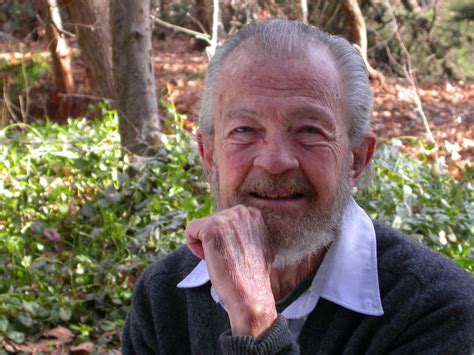A Quote by Edward Bulwer-Lytton, 1st Baron Lytton
A man of genius is inexhaustible only in proportion as he is always renourishing his genius.
Related Quotes
The book, the college, the school of art, the institution of any kind, stop with some past utterance of genius. . . . They look backward and not forward. But genius looks forward: the eyes of man are set in his forehead, not in his hindhead: man hopes: genius creates. Whatever talents may be, if the man create not, the pure efflux of the Deity is not his; - cinders and smoke there may be, but not yet flame.
I regret that I must so continually use the word genius, as if that should apply only to a caste as well defined from those below as income-tax payers are from the untaxed. The word genius was very probably invented by a man who had small claims on it himself; greater men would have understood better what to be a genius really was, and probably they would have come to see that the word could be applied to most people. Goethe said that perhaps only a genius is able to understand a genius.
The Man of Genius may at the same time be, indeed is commonly, an Artist, but the two are not to be confounded. The Man of Genius,referred to mankind, is an originator, an inspired or demonic man, who produces a perfect work in obedience to laws yet unexplored. The artist is he who detects and applies the law from observation of the works of Genius, whether of man or nature. The Artisan is he who merely applies the rules which others have detected. There has been no man of pure Genius, as there has been none wholly destitute of Genius.
Genius is answerable only to itself; it is the sole judge of the means, since it alone knows the end; thus genius must consider itself as above the law, for it is the task of genius to remake the law; moreover the man who frees himself from his time and place may take everything, hazard everything, for everything is his by right.
Genius is by definition a style of consciousness characterized by the ability to access high energy attractor patterns. It is not a personality characteristic. It is not something that a person has, nor even something that someone is. Those in whom we recognize genius commonly disclaim it. A universal characteristic of genius is humility. The genius has always attributed his insights to some higher influence.
Nothing is so much coveted by a young man as the reputation of being a genius; and many seem to feel that the want of patience for laborious application and deep research is such a mark of genius as cannot be mistaken: while a real genius, like Sir Isaac Newton, with great modesty says, that the great and only difference between his mind and the minds of others consisted solely in his having more patience.
The best minds come from the most unexpected faces and places. There is no image for intelligence or genius. Genius is something that cannot be seen. It cannot be produced or manufactured. It is something that even the true genius thinks is unattainable. The genius recognizes he’s just a small pea in a sea of infinite atoms. Knowledge is as infinite as the universe. The man who claims to know all, only reveals to all that he really knows nothing.
His hypothesis goes to this - to make the common run of his readers fancy they can do all that can be done by genius, and to make the man of genius believe he can only do what is to be done by mechanical rules and systematic industry. This is not a very feasible scheme; nor is Sir Joshua sufficiently clear and explicit in his reasoning in support of it.
The great genius does not let his work be determined by the concrete finite conditions that surround him, whilst it is from these that the work of the statesman takes its direction and its termination. ... It is the genius in reality and not the other who is the creator of history, for it is only the genius who is outside and unconditioned by history.

































